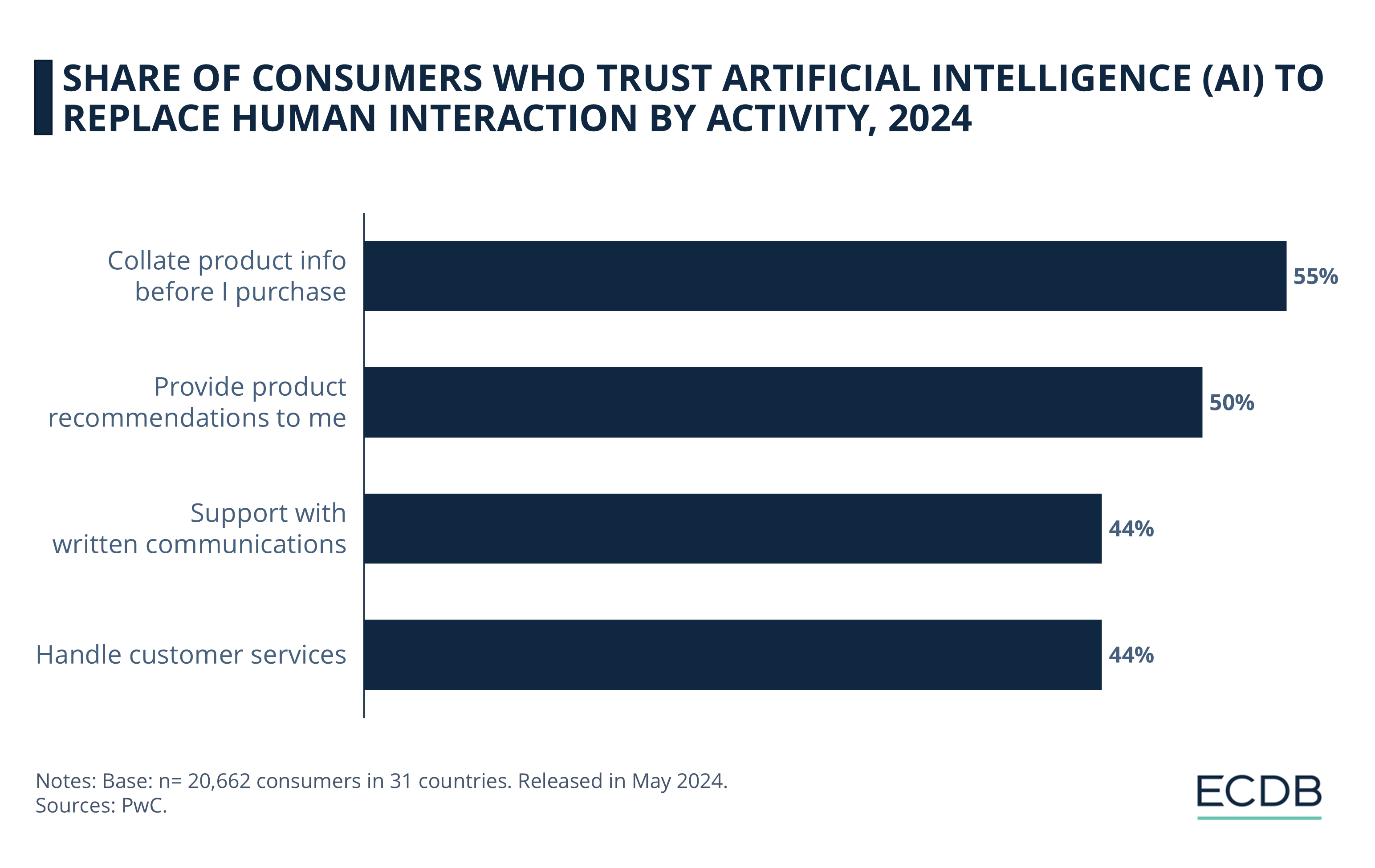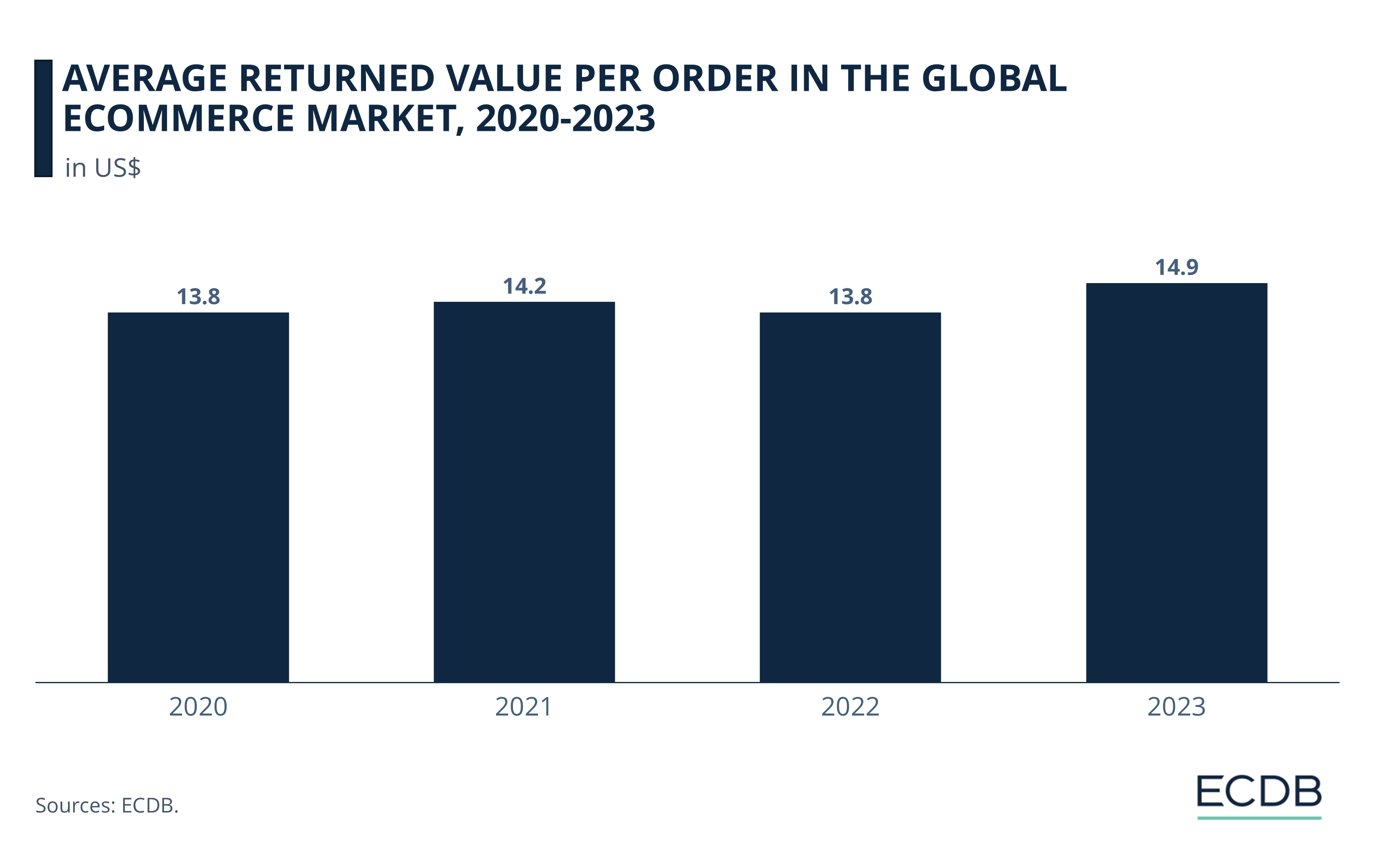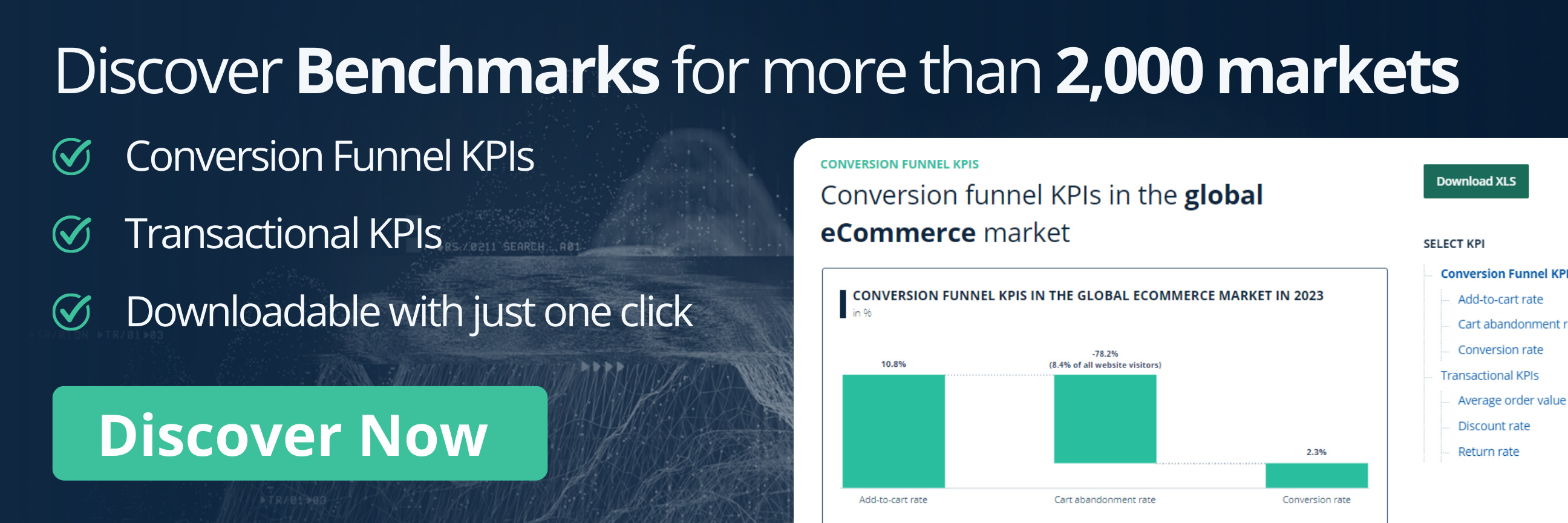eCommerce: Artificial Intelligence
Google's AI Project Jarvis Could Change Online Shopping
Google’s "Project Jarvis" could transform eCommerce with AI-powered shopping agents, as more consumers trust AI to simplify buying decisions and reduce returns.
Article by Cihan Uzunoglu | October 29, 2024
Artificial Intelligence in Online Shopping: Key Insights
AI Shopping Agents: Google’s "Project Jarvis" and other AI-driven tools could soon manage complex online tasks like shopping for users, marking a shift toward digital agents that simplify consumer interactions and reshape the future of eCommerce.
Consumer Trust in AI: Data reveals growing consumer openness to AI assistance in gathering product details – a trend that promises not only a smoother shopping experience but also potential cost savings from fewer returns, benefiting both shoppers and retailers.
Would you let a robot shop for you? Google seems to think you might, and it’s betting on artificial intelligence (AI) to make online shopping even easier.
The rumored "Project Jarvis" could soon enable AI agents to navigate browsers and perform complex online tasks on behalf of users. The tool, set to launch this December with Google's new Gemini language models, aims to handle everything from vacation planning to online shopping. This signals a shift toward more autonomous digital agents in eCommerce.
The system interprets the user's screen images, button clicks, and form fills, although it currently operates with a slight lag, indicating that it is still being refined. As companies like Anthropic introduce similar AI tools, the race to redefine how consumers interact with online platforms is heating up.
Impact on eCommerce & Consumer Behavior
Such AI agents promise to simplify the browsing and purchasing process by making interactions more intuitive and less time-consuming for consumers. The rise of autonomous AI agents could reshape online shopping as companies adapt their websites for AI compatibility.
Automated transactions could streamline shopping, but they also mean that companies will have to rethink user experience design to accommodate both human and AI "shoppers." AI agents can sense and respond to real-time business data, potentially transforming supply chain and pricing decisions.
Will Consumers Welcome This?
Building on the potential impact of AI agents, global data reveals that a majority of consumers are open to AI support when gathering product information before making purchases. This openness points to a growing trust in AI's role in simplifying online shopping and optimizing decision-making:

Collating Product Information: Based on a PwC survey conducted in 31 countries, 55% of consumers trust AI to gather and present product details before they buy. Consumers are increasingly ready to rely on AI to filter choices and offer relevant product insights, streamlining their pre-purchase process.
Product Recommendations & Customer Support: In addition, half of consumers are comfortable with AI-generated product recommendations. 44% would trust AI to manage customer service interactions, signaling further openness to AI in routine tasks traditionally handled by people.
AI & Returns: A Win-Win for
Consumers and Retailers
Jarvis has the potential to not only enhance online shopping experiences but also cut down on returned products. By gathering accurate product information and providing tailored recommendations, these AI agents help shoppers make better-informed purchases, which can lead to fewer return requests.
For retailers, this means a reduction in costs associated with returns – shipping, handling, and restocking – thereby protecting their profit margins. In fact, analyzing the recent ECDB data on average returned value per order in the global eCommerce market:

The average return value per order in global eCommerce rose from US$13.8 in 2020 to US$14.9 in 2023, reflecting a growing financial impact for retailers.
With AI-driven recommendations helping consumers make more accurate choices, return rates could stabilize, leading to cost efficiencies across supply chains and improving profit margins.
Artificial Intelligence in Online Shopping:
Final Thoughts
AI agents like Jarvis represent a new frontier in personalized shopping experiences, with the potential to reshape not only consumer habits but also industry standards. By enhancing pre-purchase information, tailoring recommendations, and reducing the need for consumers to manually navigate each step, AI could redefine efficiency and precision in online transactions.
Discover Our Data: Our frequently updated rankings provide essential insights to help your business thrive. Wondering which stores and companies are excelling in eCommerce? Interested in the top-performing categories? Find the answers in our rankings for companies, stores, and marketplaces. Stay competitive with ECDB.
So, what can we realistically expect from this shift? Perhaps ultimately a more efficient online shopping world, where consumers have less manual involvement in routine tasks? This would allow for a more streamlined shopping experience focused on choice and convenience. While we should acknowledge that Jarvis and similar AI agents are taking their first steps, the future we're talking about may come sooner than we expect.
Sources: PYMNTS, ECDB

Click here for
more relevant insights from
our partner Mastercard.
Related insights
Deep Dive
Next Generation eCommerce: Key Trends Shaping the New Age of Online Retail
Next Generation eCommerce: Key Trends Shaping the New Age of Online Retail
Deep Dive
FTC’s New Ban in Effect & How to Spot Fake Reviews in Online Shopping
FTC’s New Ban in Effect & How to Spot Fake Reviews in Online Shopping
Deep Dive
How to Avoid Online Shopping Scams Ahead of the Holiday Season
How to Avoid Online Shopping Scams Ahead of the Holiday Season
Deep Dive
Artificial Intelligence in Italy eCommerce: Consumer Behavior & Preferences
Artificial Intelligence in Italy eCommerce: Consumer Behavior & Preferences
Deep Dive
Amazon’s New AI Assistant Project Amelia Will Support Third-Party Sellers
Amazon’s New AI Assistant Project Amelia Will Support Third-Party Sellers
Back to main topics
